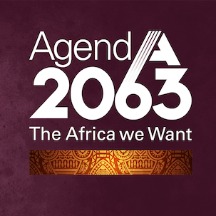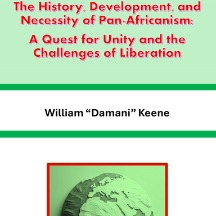Pan-Africanism stands as a complex and evolving ideology and sociopolitical movement centered on the unification and empowerment of African peoples, both on the African continent and throughout the global diaspora. Emerging as a powerful response to centuries of slavery, colonialism, and entrenched racism, Pan-Africanism articulates a shared identity, history, and destiny for individuals of African descent, advocating for their collective liberation and self-determination. This intellectual and political framework transcends national boundaries, emphasizing the interconnectedness of the struggles and aspirations of African and diasporic communities worldwide.
This book will delve into the multifaceted history and development of Pan-Africanism, tracing its intellectual and historical roots, examining its key figures and pivotal congresses, and exploring its evolving ideologies in response to changing global contexts. Furthermore, it will analyze the significant role of Pan-Africanism in the decolonization of Africa, its contemporary relevance in the 21st century, and the various challenges and critiques it has faced.
By exploring the contributions of art, literature, the crucial role of women, the impact of globalization and digital technologies, and the ongoing debates within the movement, this book aims to provide a comprehensive understanding of Pan-Africanism's enduring significance in shaping the 20th and 21st centuries.
NOTE:
- The author considers and refers to all people of African descent as Africans, no matter their residence or citizenship.
The origins of modern Pan-Africanism can be traced back to the harrowing experiences of the transatlantic slave trade, where enslaved Africans, forcibly removed from their diverse homelands, forged bonds of solidarity and unity, often referring to themselves as "ship-mates". These early forms of resistance and the shared trauma of enslavement laid the groundwork for a collective consciousness and a sense of shared destiny among people of African descent.
Speaking various native languages, coming from different regions and several ethnic groups, captured and enslaved Africans living together merged aspects of their ancestral cosmologies and spiritual as well as cultural practices.
Together, they also learned the colonizers’ languages and developed their own, often clandestine, forms of communication and worship. Their efforts to retain an essence of African culture were sometimes successful as they created renewed communal identities. During that epoch, those identities reached their fullest Pan-Africanist expression in free Maroon, Cimarron, Seminole, and Quilombo (Carabali) enclaves in the Americas despite and/or due to being under constant attack.
Pan-Africanism in the 21st Century: Relevance and Adaptation in a Changing World
Despite the challenges it has faced, Pan-Africanism remains a relevant and evolving force in the 21st century, adapting to address contemporary issues and leveraging new opportunities in a changing world. In the face of democratic backsliding in some African nations, Pan-Africanist ideals continue to champion people's democracy, human rights, and the impor-tance of citizen agency and accountability.
The African Union (AU), successor to the OAU, serves as the primary institutional framework for Pan-African cooperation and integration in the 21st century, striving to achieve greater unity, solidarity, and economic development across the continent. The AU's Agenda 2063, which envisions a prosperous and integrated Africa, reflects the enduring aspirations of Pan-Africanism.
Beyond its focus on political and economic cooperation among member states, the AU has taken significant steps to recognize and integrate the African diaspora into its framework. Notably, in 2012, the AU designated the African diaspora as the "Sixth Region" of Africa, acknowledging the shared heritage and interconnectedness of Africans on the continent and those dispersed globally. This entity provides a platform for the diaspora to actively participate in the AU's initiatives and contribute to the continent's development. The author was honored to be appointed a Member of Parliament for North America at its initiation in 2019. The core purpose of the Sixth Region is “
Mobilizing the African Diaspora for the transformation of Mother Africa.”
Globalization, while posing economic challenges, has also facilitated greater inter-connectedness among African nations and the Diaspora. Digital technologies and social media have emerged as powerful tools for contemporary Pan-African activism and identity formation, enabling new forms of solidarity and cross-border collaboration among activists, intellectuals, and citizens. The ease of communication and information sharing in the digital age allows for the rapid dissemination of Pan-Africanist ideas, the mobilization of support for various causes, and the fostering of a shared African identity that transcends geographical boundaries. Young people, in particular, are increasingly utilizing digital platforms to reinvent Pan-Africanism, embracing democratic ideals and connecting struggles across borders.
In the future, the movement must navigate the complexities of a globalized world, embrace inclusivity for Africans at home and abroad, take decisive action toward a better world, and build upon its rich legacy in order to achieve lasting unity, liberation, safety, and economic well-being for all people of African descent.
Read More:
The History, Development, and Necessity of Pan-Africanism:
A Quest for Unity and the Challenges of Liberation ($1.99)
From Our Archives:
If You Know 1619, Should You Know 2063?








